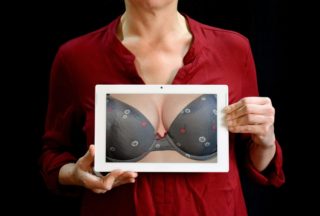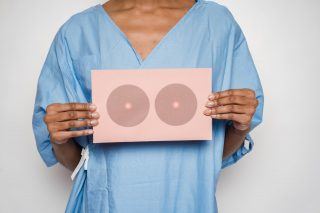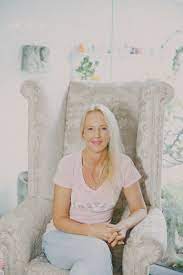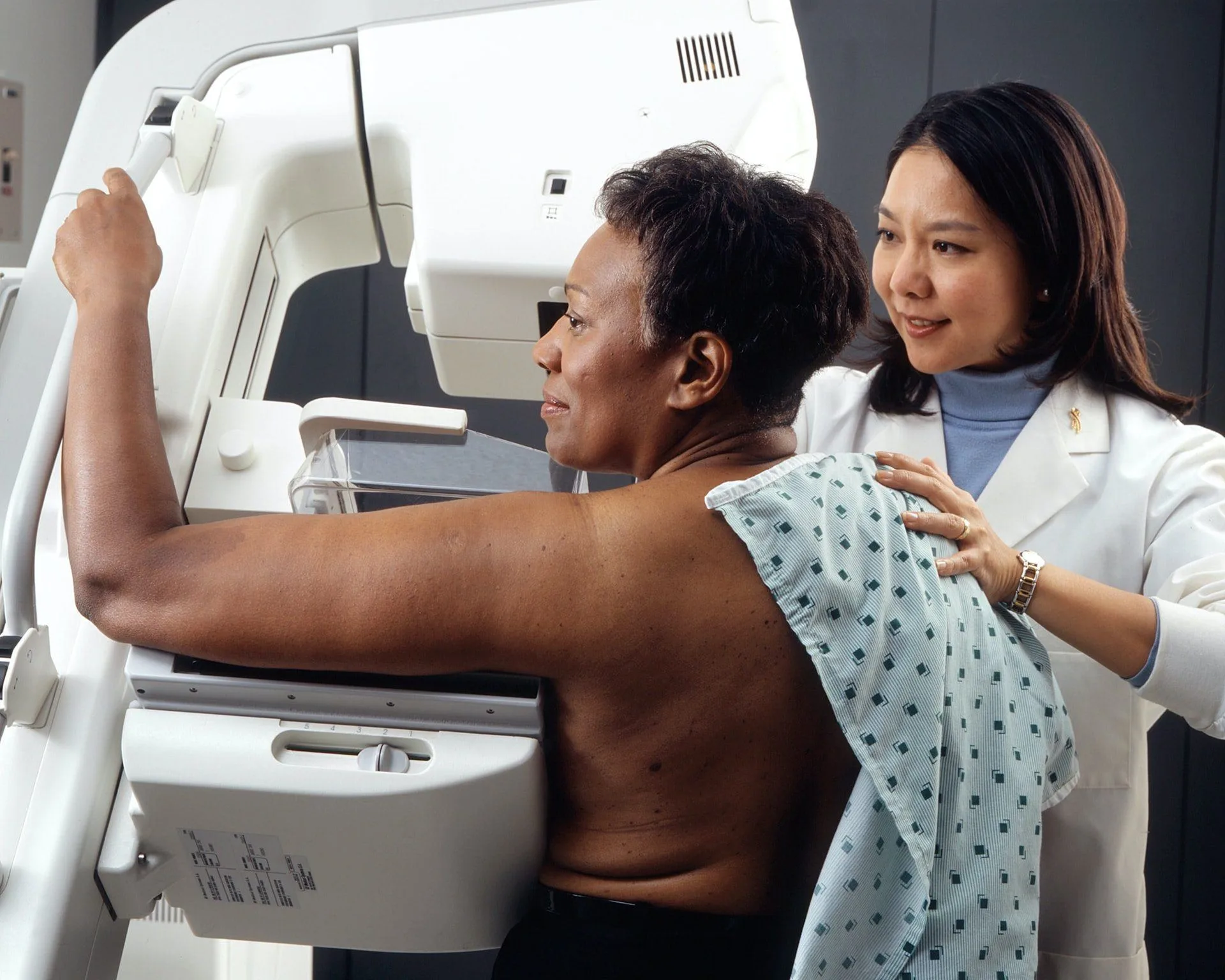It would be naive not to think about how the pandemic has changed the way we view cancer care. However, the pandemic has also provided us with lessons that we can apply.
By the end of 2020, 7.8 million women alive had been diagnosed with breast cancer in the past 5 years, making it the world’s most prevalent cancer. That said, there’s a lot that we can learn from the pandemic in regards to breast cancer.
Dr Carol Benn is a specialist surgeon and breast disease specialist. She established the Breast Care Centre of Excellence at Netcare Milpark Hospital.
Read on as Dr. Benn provides insight on how COVID-19 has paved a way to improve breast cancer care.
Breast Cancer Care During A Pandemic
So how has the pandemic affected the way we approach breast cancer care?
“Big issues around breast cancer are always early diagnosis and treatment availability.” explained Dr. Benn,

“The pandemic resulted in fewer women going for their screening mammograms (many women did not screen last year). Whilst I have not been able to crunch the data yet, more women arrived at Helen Joseph Breast Clinic with advanced cancers.”
Innovations in treatments
“In terms of treatment in the private sector, the pandemic has resulted in more patient-centred approaches,” says Dr. Benn, adding that fewer people are rushing into surgery (which is a good thing).
“More women with early-stage hormone-sensitive breast cancer were treated with endocrine therapy as a holding treatment prior to surgery”. According to Dr. Benn, this is a great tactic. How so? Because it ensures women have an opportunity to assess where and what treatments they want.
Telemedicine and breast cancer care
The growth of telemedicine has also played a role in the treatment and care of breast cancer. Using of telemedicine platform allows healthcare specialists to evaluate, diagnose and treat patients in distant locations.

Photo by Klaus Nielsen from Pexels
“Virtual multidisciplinary unit meetings also resulted in more doctors accessing interdisciplinary patient decision making, and there was an international trend of home-based oncology care and safer systems around surgical hospitalisation.” says Dr. Benn,
“ In my unit, due to people not being allowed to visit loved ones, an immediate post-surgery phone call by myself re the surgery was instituted and will become a continued service post-pandemic.”
Dr. Benn adds that they also set up family MS Teams and Zoom chats. This was especially valuable as many families are located across the world.
Changing perceptions
Breast cancer affects 2.3 million women (and 2650 men) every year. Unfortunately, due to the concern surrounding the COVID-19 pandemic, the risk of breast cancer is sadly not being taken as seriously as it should. While Dr. Benn does note that many people do have anxieties and fears about breast cancer, this is not true for everyone,
“Some people who are anxious have heightened fears around cancer and COVID-19, while others have other concerns ranging from finances to dealing with loss of family members. As a result, cancer risks became less important.”
Fears delay diagnosis
Sadly, the fears surrounding COVID-19 also created a delay when it came to the diagnosis, and later, the care and treatment of cancer.
“On the downside, patients’ fears of hospitals as a result of general fears about SARS-Cov-2, resulted in non-compliance and late access to care.” explains Dr. Benn, “Unfortunately, oncology and radiation services for government patients resulted in delays in receiving radiation and oncology services.”

Photo by Klaus Nielsen from Pexels
Lessons to learn
“The pandemic has been a great equaliser in terms of everyone understanding the fragility of life,” says Dr. Benn.
“I have tremendous love, respect and awe for the many ladies who I see with breast cancer and who fight all the odds — chemo is not easy; neither is surgery nor being forced into menopause,” says Dr. Benn. She adds that a diagnosis of breast cancer puts life into perspective and makes us deal with the concept and fear of death, despite many women with breast cancer overcoming the disease and surviving.
“Everyone now has had to embrace these fears. The pandemic has — and should have — us all understanding what the important values of life are. Not money or success but giving forward, bravely tackling every day, appreciating family and friends, and making an effort to connect with people we may not be able to see.” she says.
Breast cancer care and awareness
When it comes to breast health and breast cancer, one should never underestimate the importance of awareness and education.
 “In terms of breast health, I have thoroughly enjoyed online teaching, working with the breast health foundation to put our information on “knowing your norms” and public education so pools know where they can access healthcare and how to do so safely.” says Dr. Benn, “The importance of vaccinations and public education is an important aspect of health, specifically when it comes to understanding community transmission of diseases, appropriate use of health systems such as when you should see a doctor and which doctor to see, and the value of patient navigators to help negotiate healthcare systems.”
“In terms of breast health, I have thoroughly enjoyed online teaching, working with the breast health foundation to put our information on “knowing your norms” and public education so pools know where they can access healthcare and how to do so safely.” says Dr. Benn, “The importance of vaccinations and public education is an important aspect of health, specifically when it comes to understanding community transmission of diseases, appropriate use of health systems such as when you should see a doctor and which doctor to see, and the value of patient navigators to help negotiate healthcare systems.”
Surviving breast cancer in a pandemic
While we are all each aware of the issues surrounding COVID-19, many people are unaware of the struggles that come with breast cancer,
“These include access to care; financial concerns (in my own experience, I have helped run two units that ensures all women, irrespective of funding, can access care)” says Dr. Benn, “Fear is another, and it has now been heightened by the threat of SARS-Cov-2. There’s also the importance of support, which is where navigation is critical, but also in terms of having family and friends beside you (the power of a good hug is something that is sorely missed); and taking the time to understand all your options and decisions as a patient (i.e. not rushing into “emergency surgery”).”
“The journey with cancer can be likened to a Comrades marathon that must be achieved one small shuffle at a time. And here, I’d like to give a shout out to all the essential workers and all the patients… Together, we can.”
Who is Dr. Carol Benn?

Dr. Carol Benn
Dr. Carol-Ann Benn is a Fellow of the College of Surgeons of South Africa with a special interest in Breast Disease. Her capacity as Head of the Breast Unit of Helen Joseph Hospital proves her long career and her commitment to clinical excellence in this field of Medical speciality. Prof Benn offers service to society and the greater medical community, both local and international, through her contributions, published and presented, and she is recognised internationally as a leader in Breast Disease. As a lecturer in the Department of Surgery at the University of the Witwatersrand, she contributes towards the education of healthcare professionals.
Through the organisation of foreign and private funding, Prof Benn was able to establish the Breast Health Foundation, various Breast Health Care forums and outreach programmes and in representation on numerous Medical Boards and Health Care Committees, Prof Benn has paved the way for the improvement of women’s health care; has contributed towards the uplifting of women in society and has opened channels for public awareness of breast health.
She established the Netcare Breast Care Centre of Excellence at the Milpark Hospital, Johannesburg. It co-ordinates national efforts for the specialised management of breast conditions to all women. This is the only international accredited unit in South Africa with N.APBC accreditation In addition to her positions of responsibility, Prof Benn manages continuing research and research output. Numerous awards testify to her esteemed position in the Medical field and in South African society.



![women [longevity live]](https://longevitylive.com/wp-content/uploads/2020/01/photo-of-women-walking-down-the-street-1116984-100x100.jpg)










